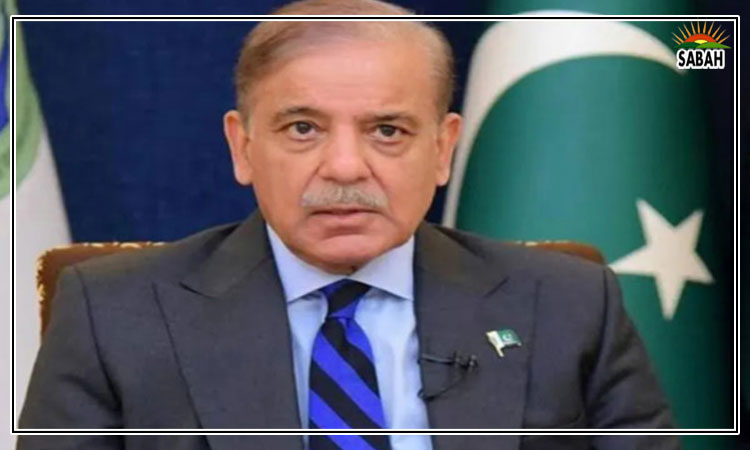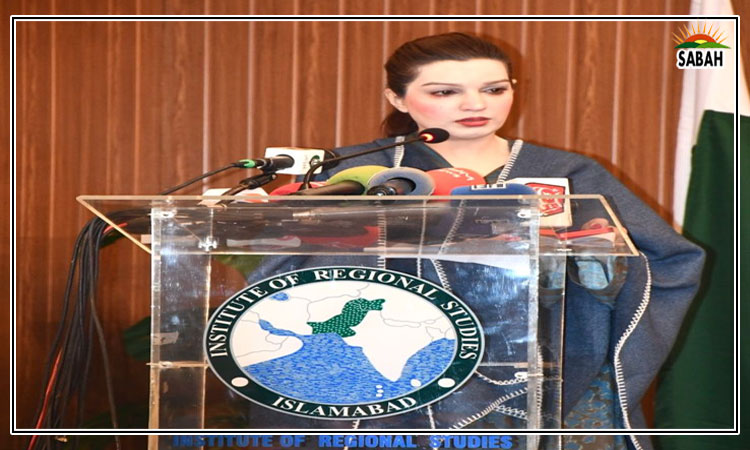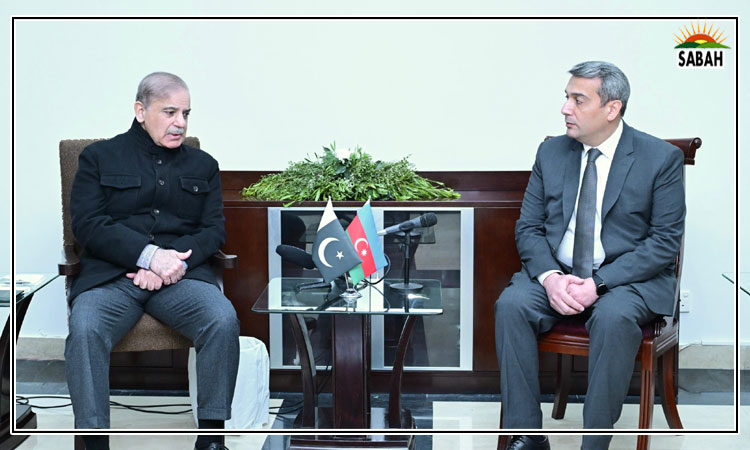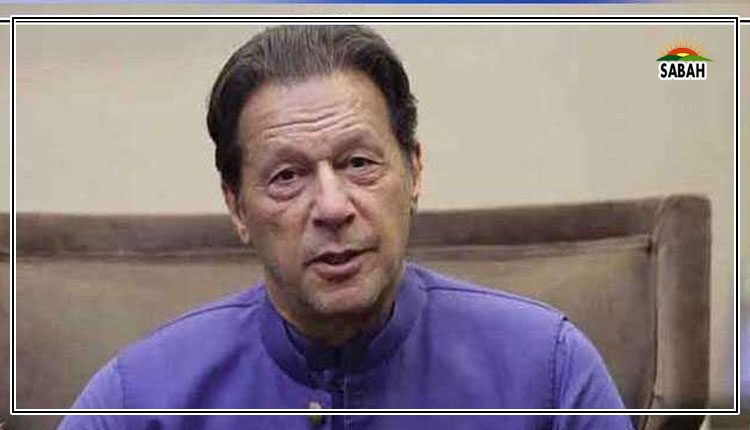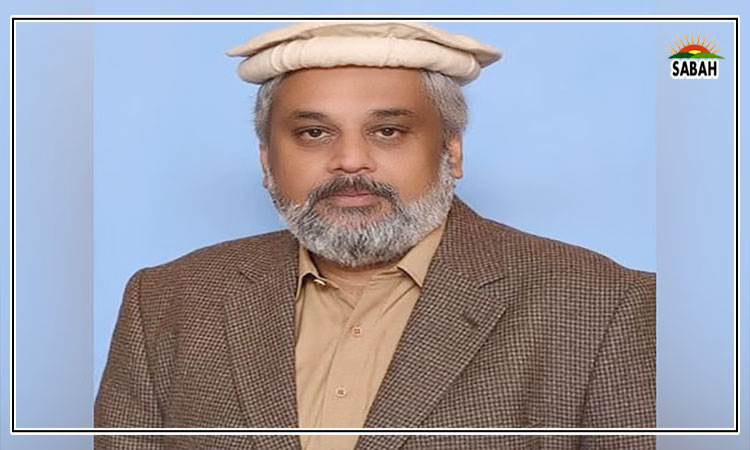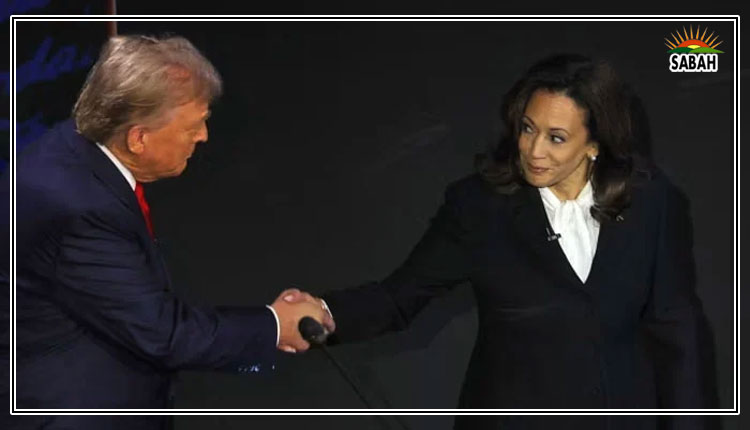Two candidates, two foreign policies … By Touqir Hussain
The United States of America is in a tight presidential election. And tight elections are usually hard to predict. Yet one outcome is evident. Whoever wins, the country will remain divided. The polarisation reflects the nation’s old and new tensions marked by contentious identities, ideological conflicts, societal discords, competitive politics, and culture wars.
The same divisions now project into the foreign policy. The strategic competition with China, resistance to America’s hegemonic world view from rising powers, the wars in Europe and the Middle East, the climate change, cyberwarfare, and the threat of terrorism present a complex of foreign policy challenges. How will the two candidates navigate this difficult landscape in the absence of any national consensus on key issues in a divided country, and with no viable plans of their own?
Both candidates have contrary visions of America and its global role. Harris is an internationalist; Trump is isolationist and protectionist. Harris, like much of the foreign policy establishment, believes in American exceptionalism that feels entitled to play the role of global leadership. Trump’s foreign policy during his first term was a repudiation of this elitist consensus, a policy he is likely to continue if reelected.
Trump has already forced changes in the establishment’s thinking on many issues, principally about the ‘forever wars’ and America’s fascination with globalisation and unconditioned cooperation with China. He has prompted the administration to refocus attention on domestic issues. Trump as president had done precisely that but for reasons of his own, not as part of a clear world view or a well thought out plan or a strategic design. Trumpism was actually all about Trump.
For Trump, foreign policy – or, for that matter, even domestic policy – was geared towards pleasing his supporters. His foreign policy was quid pro quo for the political support by his followers, many of whom had lost jobs to globalisation and by extension to China and the globalist elite. He and his supporters saw that the elite instead of serving them were financing wars or wasting money on alliances and forever wars.
Globalisation and exploitation by the globalist elite, the worst example of which was the 2008 financial crisis along with the immigration and refugee crisis, created job losses, social discontent, adding to the threat to security from terrorism after 9/11.
Economic grievances, a sense of insecurity, culture shocks and the fear of erosion of the white identity whipped up anti-China sentiments, xenophobia and Islamophobia, and a yearning for some strongman who could be tough with the terrorists and the countries that were taking advantage of the US. Trump’s Muslim travel ban, which he has said he would re-impose, in a single move wrapped up his supporters’ biases about Islam, and apprehensions about immigration, and terrorism.
This time he is going after immigrants, especially asylum seekers and refugees, leading to strong fear among his supporters of crime and threats to American identity. He has promised to expel 12 million that he claims are in this country illegally. He tells his supporters he is going to “save America”. All this makes him look like a decisive and strong leader who is on their side.
Trump had imposed tariffs especially on China which he has promised to double if reelected. It mattered little to his supporters if these tariffs were bad economics. They saw in them a punishment that China deserved. And of course there are some tariffs like on the Chinese EVs which Biden has imposed, which Trump has promised to double, that will protect America’s car manufactures for which there is a broad national support. The fact is neo protectionism, and the new industrial policy dominated by the ‘Make in America’ slogan now enjoys bipartisan support.
Threatening Nato allies to pay more was seen by the Trump supporters as a fair demand in a capitalist society believing in burden sharing. If he is reelected he will double down on these. Trump is unprincipled and transactional but also pragmatic and non-ideological. He would not pull out of Nato even though he has repeatedly suggested he might do so.
Bob Woodward’s just published book ‘War’ mentions that Trump after leaving office had no less than seven conversations with Putin. This would outrage foreign policy professionals – but not Trump’s supporters. Not knowing the niceties of diplomacy, they probably feel that Trump has personal relations with Putin which would help find a good ‘deal’ on Ukraine – as if this were some kind of a business proposition.
These conversations also make him look like a popular world leader. And if Putin is willing to talk to him it is because he is like him, a strong man – or so goes the logic of his supporters. And ‘strength’ is the reason why so many of his followers support him. On Ukraine, expect Trump to sign a deal with Putin like he did with the Taliban. So much for his ‘strength’.
Besides the above policies, Trump supports some of the traditional hard line policies of the Republican hawks which are also popular with his base – like strong defence, extreme pressure against Iran, and unlimited support for one particular state.
Harris’s policies will be a continuation of the traditional establishment policy engrained in the belief that a strong America remains indispensable to the world, and alliances remain vital to the US power and influence. This has been the staple of the US foreign policy at least since the end of World War II and has helped maintain Washington’s global primacy. But this long held foreign policy consensus has been under challenge not only from Trump but also from the strategic community.
Vice President Harris’ national security advisor Philip Gordon, and deputy national security advisor Rebecca Lissner, in their past academic writings had spoken of the failed post-cold war ‘liberal international order’ and advised against interventionist foreign policy obsessed with maintaining US global primacy. American interventions in Egypt, Iraq, Iran, Libya, and Syria were a clear proof that regime change does not work anymore, if ever it did.
Biden tried to tweak this system by finding a workable compromise between the old consensus on globalisation and the national consensus in favour of protectionism and industrial policy. Harris will continue with these policies. Like Biden Harris will try to bridge the ‘global policeman era’ and this new ‘era of restraint’. She will avoid involvement in wars but will remain committed to upholding US primacy even though it may continue to provoke conflict and a contentious international order.
Harris will likely continue Biden’s China policy – a mix of countering, containing and engaging China. But overall like Biden she will seek stabilisation of the relations. Her Gulf and broader region related policies will be more like that of Obama – strong on rhetoric and weak on action. The colonial settler state there, and its prime minister, has taken the situation so far away from where it was that immediate attention will probably be focused on reconstruction and humanitarian issues than actual people’s rights.
Both candidates will continue the Indo-Pacific strategy and strong support for India as there is a national consensus for it. Harris’s Indian identity will not affect her South Asia policy. Relations with Pakistan will remain limited but sustainable as it will not be wise to isolate a strong ally of China.
America’s economic primacy and military dominance will live on but its hegemony will continue to erode. The long existing US foreign policy frameworks have become obsolete. The liberal international order has been discredited by the current ongoing wars in the world. But neither candidate has a workable plan that addresses the new realities, and balances his/her own political interests at home, and America’s national interests and reputation abroad.




